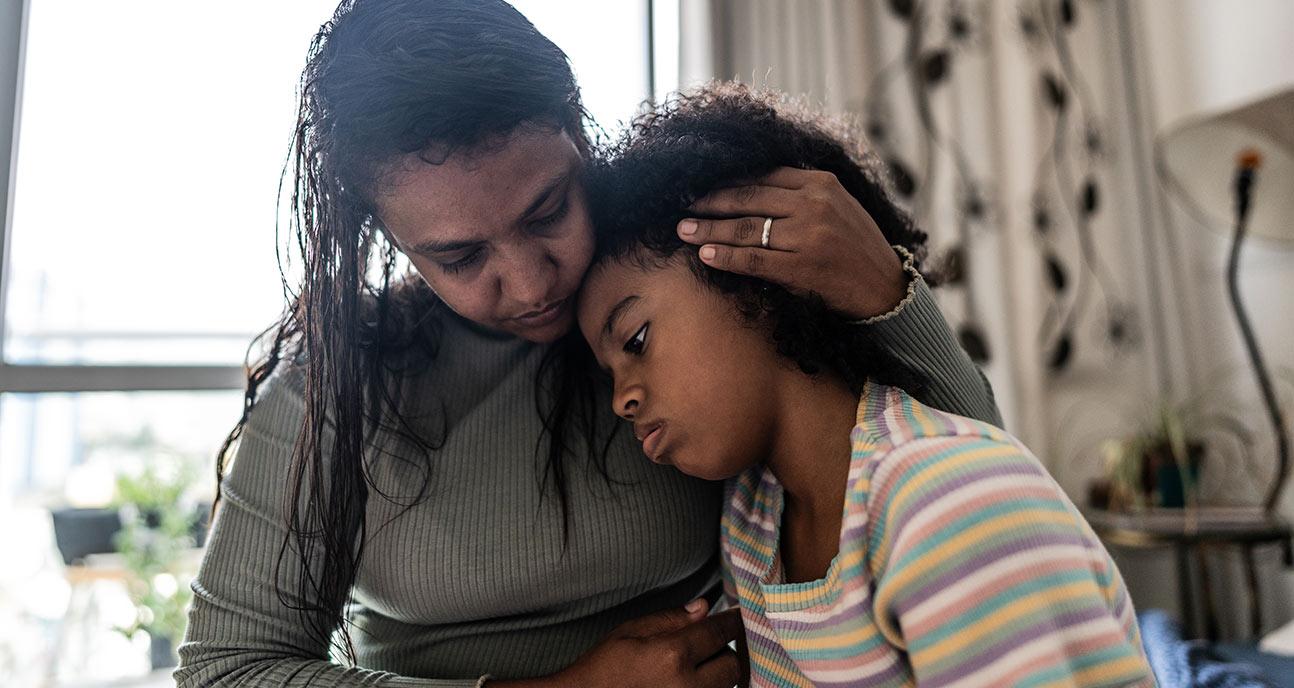Insights from RECOVER’s pediatric study can inform future clinical trials

As RECOVER advances pediatric Long COVID research, researchers look toward including children and young adults in Long COVID clinical trials.
RECOVER is committed to understanding how Long COVID affects everyone. For this reason, children and adolescents have been included in RECOVER observational studies from the beginning. Now researchers are starting to apply what they’ve learned from the pediatric observational study to answer important questions about how future clinical trials could include or focus on children experiencing Long COVID symptoms.

“A desperate need”
RECOVER researchers have enrolled almost 15,000 children into the pediatric study. Many of these children have experienced prolonged symptoms for months or even years, and symptoms can impact every organ system in the body. These symptoms can greatly impact a child’s quality of life and affect their ability to play, go to school, or get regular sleep.
Dr. Rachel Gross is a pediatrician and principal investigator at the RECOVER Clinical Science Core at NYU Grossman School of Medicine. As a leader in RECOVER’s pediatric observational study, she works with children and families who she says have “a desperate need for help and medical care.”
Despite this urgent need, there are few ongoing clinical trials that test potential Long COVID treatments for children. In a recent presentation, Dr. Melissa Stockwell, a pediatrician and public health researcher who helps lead RECOVER’s pediatric research, indicated that there are only 11 Long COVID clinical trials enrolling children, and only six of those trials are designed specifically for children.
To close this gap, RECOVER is evaluating how to include more children in clinical trials. “Children are not little adults, and we need to do research to support their care,” says Dr. Gross.
Building on a strong foundation
RECOVER observational studies provide a foundation to support future clinical trials. A recent Journal of the American Medical Association (JAMA) article characterized Long COVID symptoms in children and adolescents participating in the RECOVER pediatric observational study.
Read RECOVER’s findings on pediatric Long COVID.
In the JAMA article, RECOVER researchers found that Long COVID symptoms were different among school-age children and adolescents than in adults. Researchers also found that symptoms in young people often differed based on their age.
Researchers continue to investigate the causes and changes in the body that may explain these patterns. They are studying how Long COVID symptoms change over time, and what factors are at play when symptoms go away, stay for a long time, or go away and then return.
Dr. Gross stresses that researchers must understand that Long COVID treatments may need to be tailored based on age. “These findings will have implications for future therapeutics and clinical trials,” she says. “This signals that there will not be a one-size-fits-all approach for prevention and treatment.”
Looking forward
According to Dr. Gross, there are several ways clinical trials could include children and adolescents. Researchers could seek to include adolescents in ongoing clinical trials because they experience some symptoms that are similar to adults. Clinical trials could also prioritize inclusion of those with the highest symptom burden and who have had multiple organ systems affected by Long COVID.
Future clinical trials could build on RECOVER’s existing infrastructure, says Dr. Gross. This includes over 100 pediatric sites, hundreds of researchers with pediatric expertise, and thousands of enrolled children and families who may be also willing to participate in clinical trials.
Even as additional clinical trials are being planned, researchers working on the RECOVER pediatric observational study are still making important discoveries. Dr. Gross and her fellow researchers are continuing to characterize symptoms, this time in younger children (infants through 5-year-olds). The team is examining both clinical factors and the environments in which people grow and live (such as income and zip code) to see how they may influence the development of Long COVID. Dr. Gross says that studying these factors may help researchers understand why some children develop Long COVID and others do not.
Some children will continue to take part in the observational study for up to 4 years. By following these children over the next several years, RECOVER researchers will achieve a better understanding of Long COVID symptoms that last a long time, whether there are common patterns in those symptoms, and how children might recover from them.
Through these continuing studies—and others in the future—RECOVER researchers can better understand how to prevent Long COVID in children and find appropriate Long COVID treatments. As Dr. Gross says, the goal is “to protect children through research, not from research.”
Caring for your family through Long COVID
Dr. Gross encourages families to do what they can to help their children and young adults with Long COVID:
- Share your child’s and family’s experiences with pediatricians and other healthcare teams. RECOVER researchers developed a tip sheet (PDF, 210 KB) that provides guidance on how to talk about pediatric Long COVID.
- Document your child’s symptoms.
- Reach out to advocacy groups to find a supportive community.
- Seek a second opinion if you feel like your concerns aren’t being heard.